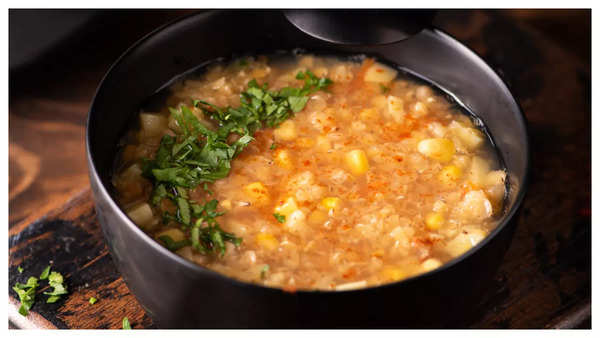Sometimes we find ourselves adding too much salt unintentionally while trying to make wonderful soups. In addition to harming the dish's flavor, using too much salt can also be harmful to our health. You've come to the right place if you're seeking for solutions to reduce the amount of salt in your soups and develop a flawlessly harmonious flavor profile. We'll provide professional advice and methods in this thorough guide to assist you in making excellent soups without using an excessive amount of sodium.
Slowly Adding Ingredients
One of the most important strategies for avoiding oversalinization of soups is to gently add salt while cooking. Start by adding a small quantity of salt, then taste as you go and make adjustments. Using this strategy, you may easily obtain the ideal taste without going overboard while keeping your sodium intake under control.
Boost the Volume
If you discover that your soup has too much salt, think about adding extra liquid ingredients that are unsalted to increase the volume. Diluting the soup will successfully lower the overall salt concentration while maintaining the flavors, whether it's with water, broth, or vegetables. This method works especially well with clear vegetable soups and brothy soups like consommé.
Include starchy vegetables like potatoes.
The natural ability of potatoes and other starchy crops to absorb excess salt is great. They can aid in absorbing some of the extra sodium and balancing the flavors when cooked in the soup. A potato or other starchy vegetable should be peeled, chopped, and cooked in the soup for a time. Don't forget to take it out before it gets mushy.
Rescue by Acidic Ingredients
Acidic foods like tomatoes, vinegar, or citrus juice can balance the effects of too much salt. These components assist to disguise the overt saltiness in addition to adding a tangy flavor. When utilizing acidic components, use caution since if not used sparingly, they can easily overshadow the dish.
Increase Size with Unsalted Ingredients
A soup with too much salt in it can benefit from more unsalted ingredients. These ingredients, whether they be extra vegetables, protein, or grains, will lessen the saltiness and give your soup a heartier texture. Additionally, they improve the dish's total nutritional worth.
Construct a Base Low in Sodium
Start by preparing a low-sodium or sodium-free foundation for your soup, such as unsalted broth or homemade stock. This gives your soup a strong basis without adding needless sodium content right away. You may produce depth without overusing salt by gradually introducing flavors with herbs and spices.
Use fresh spices and herbs
Fresh herbs and spices are a flavor powerhouse that can be used to counteract overly salty foods. Try aromatic herbs and spices like cumin, coriander, and paprika as well as thyme, rosemary, and other herbs. These additives enhance your soup's overall sensory experience while also adding rich flavors.
Include Ingredients Rich in Umami
The fifth basic taste, umami, can help your soup taste more balanced and make you feel less salty. Umami flavor is abundant in foods like mushrooms, seaweed, miso paste, and soy sauce. Strategically incorporating these ingredients can enhance the flavorful and pleasant flavor of your soup.
Exercise Regulated Simmering
Long-term simmering of your soup at a moderate heat might help the flavors combine and lessen the overall salinity. The extra salt disperses throughout this process, resulting in a more uniform distribution and reducing the effect of too much salt in each bite.
Serve with unseasoned side dishes
Serving your soup with unsalted side dishes can help balance out any remaining excess salt in the soup. A balanced meal can be made by adding croutons, plain bread, unsalted crackers, or even a dollop of plain yogurt to help balance the salty.
Keep in mind that experience and experimentation are necessary to create a delicious and well-balanced soup. You'll be well on your way to preparing soups that are both delectable and healthful if you use these professional methods and advice. Enjoy learning the craft of preparing soup while treating your taste buds to a delicious bowl.
You have the skills to make delectable foods that stand out now that you have a detailed guide to reducing excessive salt in soups. You can soon have soups that highlight your culinary skills and satisfy your palate if you incorporate these approaches into your cooking practice.
FAQs
Is there a potato variety I can use to cut the salt in my soup?
Absolutely! As a natural absorbent, potatoes of any kind perform admirably.
In order to balance out the excess salt in my soup, how much vinegar should I add?
Start with a teaspoon, taste it, and then modify to your liking.
Are there particular herbs that are most effective at hiding saltiness?
Consider aromatic herbs like basil and thyme as excellent choices.
I want to add more umami flavor to any soup, can I do it with soy sauce?
Although soy sauce is adaptable, some types of soup may benefit more from its use.
Should I re-make my overly salty soup or can it be saved?
The methods outlined above can usually be used to save a salty soup.
